- Administrator
- Albums and Singles
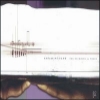 After two 12" EP's and a bunch of compilation tracks, it is gratifyingfinally to have a proper full-length from Lexaunculpt. "The Turning ofa Miniature Modem" begins the album with the sounds of an orchestratuning, which is an aptly chosen prologue since "orchestral" is an aptterm to describe Alex Graham's music. There always seems to be thishovering chamber orchestra in Lexaunculpt tracks, a rippling softnessand smoothness which vies against the foreground of clicks and glitchesand fizzles. More so than other glitch artists, Lexaunculpt makes songswhich are quite amenable as hip hop beats without actually employingsamples of extant hip hop beats. In other words, some of these songswould be an earnest emcee's wet dream. Following the introductorytuning session, "Has Been Trying Not To Wonder" undergoes a slickmetamorphosis halfway through when bubbling energetic clicks degradeinto a rhythmic synthesized insect orchestra. If this does not soundlike an enjoyable metamorphosis, trust me that it is lovely andrevealing. "A Funeral For a Pink Elephant Ear" is a nearly non-existenttrack which compels you to strain all parts of your auditory systemjust to sense if anything is happening or whether Mr. Graham hastricked us with two minutes of John Cage's copyrighted silence."Strangelove Offline" sounds less like a babbling and demented PeterSellers than it does a malfunctioning and demented Twiki robot fromBuck Rogers. Lexaunculpt waits until the very end to deliver the gem ofthe album. "Emori Dixon Renamed" is a synth-heavy song loaded withstatic which suggests that Graham's Blurring of Treestransmission is breaking up and about to dissipate. There are even somediminutive vocals trying to break through the static, or perhapsinvading from some other ghost signal. In general, I am more oftenengaged by the thick synth songs (there are a group of these whichcomprise full songs or sometimes parts of songs; they sound amazinglyorchestral and celestial at the same time) because they make me bristlewhen I hear them. For this reason, I have always wanted to score themto that part in the first Superman movie when Marlon Brando as Jor-Elis waging his closing arguments against Terence Stamp's General Zod inthat infamous treason case. When I see Zod and his two mutinouscomrades (Non and Vond-Ah) encircled by the silver hula hoops(Krypton's advanced technology for a jail cell) and the faces of theKryptonian elders all around enshrouded in darkness, I really want tobe hearing Lexaunculpt's soaring "Le Elancholia" and not whateverthrowaway piece John Williams contributed, or even the disinterestedvoice of the prosecutorial Marlon Brando. Come to think of it,Lexaunculpt would make an eerily good soundtrack for any escape podtrip from Krypton to Earth, as well.
After two 12" EP's and a bunch of compilation tracks, it is gratifyingfinally to have a proper full-length from Lexaunculpt. "The Turning ofa Miniature Modem" begins the album with the sounds of an orchestratuning, which is an aptly chosen prologue since "orchestral" is an aptterm to describe Alex Graham's music. There always seems to be thishovering chamber orchestra in Lexaunculpt tracks, a rippling softnessand smoothness which vies against the foreground of clicks and glitchesand fizzles. More so than other glitch artists, Lexaunculpt makes songswhich are quite amenable as hip hop beats without actually employingsamples of extant hip hop beats. In other words, some of these songswould be an earnest emcee's wet dream. Following the introductorytuning session, "Has Been Trying Not To Wonder" undergoes a slickmetamorphosis halfway through when bubbling energetic clicks degradeinto a rhythmic synthesized insect orchestra. If this does not soundlike an enjoyable metamorphosis, trust me that it is lovely andrevealing. "A Funeral For a Pink Elephant Ear" is a nearly non-existenttrack which compels you to strain all parts of your auditory systemjust to sense if anything is happening or whether Mr. Graham hastricked us with two minutes of John Cage's copyrighted silence."Strangelove Offline" sounds less like a babbling and demented PeterSellers than it does a malfunctioning and demented Twiki robot fromBuck Rogers. Lexaunculpt waits until the very end to deliver the gem ofthe album. "Emori Dixon Renamed" is a synth-heavy song loaded withstatic which suggests that Graham's Blurring of Treestransmission is breaking up and about to dissipate. There are even somediminutive vocals trying to break through the static, or perhapsinvading from some other ghost signal. In general, I am more oftenengaged by the thick synth songs (there are a group of these whichcomprise full songs or sometimes parts of songs; they sound amazinglyorchestral and celestial at the same time) because they make me bristlewhen I hear them. For this reason, I have always wanted to score themto that part in the first Superman movie when Marlon Brando as Jor-Elis waging his closing arguments against Terence Stamp's General Zod inthat infamous treason case. When I see Zod and his two mutinouscomrades (Non and Vond-Ah) encircled by the silver hula hoops(Krypton's advanced technology for a jail cell) and the faces of theKryptonian elders all around enshrouded in darkness, I really want tobe hearing Lexaunculpt's soaring "Le Elancholia" and not whateverthrowaway piece John Williams contributed, or even the disinterestedvoice of the prosecutorial Marlon Brando. Come to think of it,Lexaunculpt would make an eerily good soundtrack for any escape podtrip from Krypton to Earth, as well.Read More
- Administrator
- Albums and Singles
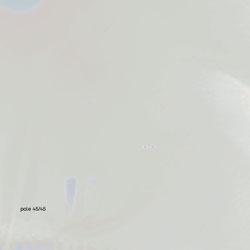 With the three albums under the Pole moniker, Stefan Betke became a dubpioneer with his broken Waldorf 4-pole filter unit. The digitizedgrooves of the Basic Channel set achieved far more exposure withBetke's well-distributed albums. For a time, it became the hottestsound in the IDM genre, with labels like Mille Plateaux pumping outnumerous releases from a plethora of artists. However, it was not longbefore somewhat-related glitch/clicks and cuts became the next trend.Still, Betke persevered with his ~scape label, giving a forum for otherartists with a similar vision (such as Jan Jelinek, Kit Clayton, andBernd Friedman), particularly with the popular Staeditizm compilationseries. After listening to this new EP, some of his peers haveapparently rubbed off on him. Starting with "Arena," a new percussiveelement has entered into the mix, creating something more similar totraditional dub music. The deep stabs that made up Pole melodies take abackseat to the funkier grooves, with mixed results over the course ofthese four songs. Pole's formerly ascetic, purist style was whatendeared me to his music in the first place. The stripped-down natureof his 1album portrayed a focused artist pushing a defective machine beyond itsexpected potential to create something beautiful and innovative. Bymoving into more accessible areas, Pole dangerously threatens his ownrelevance among the glut of experimental music releases. It would beremiss of me to play the "his older stuff is better" card withoutgiving him proper credit for creating something that while different isstill enjoyable. Particularly, the closer, "Back Home," has a certainjazzy quality that would almost fit on a Kruder & Dorfmeister mixCD, but transcends the recent output of the G-Stone family as of late.So to be fair, I will wait to pass judgement until the new albumemerges in July. Then again, I'm just a music reviewer for a website.Think for your own fucking self.
With the three albums under the Pole moniker, Stefan Betke became a dubpioneer with his broken Waldorf 4-pole filter unit. The digitizedgrooves of the Basic Channel set achieved far more exposure withBetke's well-distributed albums. For a time, it became the hottestsound in the IDM genre, with labels like Mille Plateaux pumping outnumerous releases from a plethora of artists. However, it was not longbefore somewhat-related glitch/clicks and cuts became the next trend.Still, Betke persevered with his ~scape label, giving a forum for otherartists with a similar vision (such as Jan Jelinek, Kit Clayton, andBernd Friedman), particularly with the popular Staeditizm compilationseries. After listening to this new EP, some of his peers haveapparently rubbed off on him. Starting with "Arena," a new percussiveelement has entered into the mix, creating something more similar totraditional dub music. The deep stabs that made up Pole melodies take abackseat to the funkier grooves, with mixed results over the course ofthese four songs. Pole's formerly ascetic, purist style was whatendeared me to his music in the first place. The stripped-down natureof his 1album portrayed a focused artist pushing a defective machine beyond itsexpected potential to create something beautiful and innovative. Bymoving into more accessible areas, Pole dangerously threatens his ownrelevance among the glut of experimental music releases. It would beremiss of me to play the "his older stuff is better" card withoutgiving him proper credit for creating something that while different isstill enjoyable. Particularly, the closer, "Back Home," has a certainjazzy quality that would almost fit on a Kruder & Dorfmeister mixCD, but transcends the recent output of the G-Stone family as of late.So to be fair, I will wait to pass judgement until the new albumemerges in July. Then again, I'm just a music reviewer for a website.Think for your own fucking self.Read More
- Steve Smith
- Albums and Singles
 I caught a live performance by Providence, RI-based Barnacled lastwinter in a cold, dark mill and was impressed by their humorous blendof jazz-inflected improvisation, textural noise, and quaint melodies.This CD does a fine job of capturing their unique sound. The openingtrack is a little too zany with its cut-ups between cartoon-like themesand purposefully heavy segments sounding too technical for its ownsake. While I love music that doesn't take itself too seriously, thiscan have a tendency to border on annoying if it comes off as overlysterile and precise. The band redeems itself through the improv thatfollows, particularly the quieter parts, where the accordion, baritonesax, and electronics can really display their unique sounds. One of themost mellow tracks, "Sea Hag" is almost comically moody, sounding likea demented lounge band providing accompaniment for late night drinking."Crisply Ambiguous" is similar; it interjects storms of crashingaccordion and saxophone into a strangely catchy melody. The accordionis definitely a highlight—it's used so infrequently in most improv, andhere it's played very well, leading the group down various tangents."Garbage And (Garbage And Fire)" is well-executed, starting withrepeating jazzy motifs, then building up into loud, full-band noisethat's held back by rather boring drum work, before ending with a morechaotic revisiting of the original theme. "France Attacks" is thelongest and probably most interesting song. It has a medley ofParisian-sounding accordion, lovely dual saxophone harmoniesaccompanied by quiet electronics, and the obligatory loud sections thatcome out of nowhere and disappear just as quickly. Some of the musicthroughout 6tends to drag occasionally and at times lacks variety. One othercomplaint is the compression of the recording; it doesn't convey asmuch intensity as they are capable of when the moderate and loud partsdon't differ that significantly in volume. I much prefer the sectionsof this CD that don't sound like technical exhibitionism, and there aresome fine moments that clearly show the band's songwriting andimprovising potential. Particularly due to their instrumentation andlightheartedness, Barnacled are worth checking out.
I caught a live performance by Providence, RI-based Barnacled lastwinter in a cold, dark mill and was impressed by their humorous blendof jazz-inflected improvisation, textural noise, and quaint melodies.This CD does a fine job of capturing their unique sound. The openingtrack is a little too zany with its cut-ups between cartoon-like themesand purposefully heavy segments sounding too technical for its ownsake. While I love music that doesn't take itself too seriously, thiscan have a tendency to border on annoying if it comes off as overlysterile and precise. The band redeems itself through the improv thatfollows, particularly the quieter parts, where the accordion, baritonesax, and electronics can really display their unique sounds. One of themost mellow tracks, "Sea Hag" is almost comically moody, sounding likea demented lounge band providing accompaniment for late night drinking."Crisply Ambiguous" is similar; it interjects storms of crashingaccordion and saxophone into a strangely catchy melody. The accordionis definitely a highlight—it's used so infrequently in most improv, andhere it's played very well, leading the group down various tangents."Garbage And (Garbage And Fire)" is well-executed, starting withrepeating jazzy motifs, then building up into loud, full-band noisethat's held back by rather boring drum work, before ending with a morechaotic revisiting of the original theme. "France Attacks" is thelongest and probably most interesting song. It has a medley ofParisian-sounding accordion, lovely dual saxophone harmoniesaccompanied by quiet electronics, and the obligatory loud sections thatcome out of nowhere and disappear just as quickly. Some of the musicthroughout 6tends to drag occasionally and at times lacks variety. One othercomplaint is the compression of the recording; it doesn't convey asmuch intensity as they are capable of when the moderate and loud partsdon't differ that significantly in volume. I much prefer the sectionsof this CD that don't sound like technical exhibitionism, and there aresome fine moments that clearly show the band's songwriting andimprovising potential. Particularly due to their instrumentation andlightheartedness, Barnacled are worth checking out. Read More
- Steve Smith
- Albums and Singles
 The latest release from this versatile Norwegian quartet is anexcellent set of improvised music that seems to draw as much fromatmospheric, epic rock as it does from contemporary electronic and jazztraditions. The ever-changing spontaneity lends it a loose opennessthat rarely sounds like aimless wandering, and this CD continues toreveal new elements with each listen. Opening with sliding melodiesamid a growing flurry of percussion and softly stuttering digitaleffects, the album sounds truly mysterious and unique as it buildstoward something unknown. I love the sound of the second track, whichis definitely the most jazz, with its dark, almost sleazy, modal synthand horn lead playing, anchored by some restrained but perfectlyfocused drumming. It's a soundtrack for nocturnal wandering, the wealthof electronic detail in the background helping to establish areflective mood. "6.3" opens with a cascade of high bell tones androlling percussion, and the song highlights the great interplay betweenthe players. Things settle down for a while, but soon the notes andamplitude steadily rise, building up to a climax of cymbals andelectronics. The use of dynamics seems much more pure and natural thanthe formulaic crescendos often heard elsewhere. "6.4"'s textural washof gentle guitars, organs, and brushed drums sounds the most like astraightforward instrumental rock band, albeit an adventurous andcaptivating one. The final two tracks are particularly epic andevocative. "6.5" explores uncharted territory led by some invigoratingand huge-sounding synthesizer, and in the following track, someabstract piano harmonizes with mournful wordless vocals. The abundanceof synthesizer pads and filter sweeps gives this album a slightly"prog" sound at times, but this isn't really a criticism, as the musicsounds incredibly fresh. The lack of composition and orchestrationclearly sets it apart, and the large range of electronic tones anddigital processing fit into the music so well without sounding over thetop. The record seamlessly moves throughout a nebulous regioncontaining improv-sounding, chaotic material and dynamic melodicismthat resembles organized songs; as such it's a great listen for a widerange of moods. -
The latest release from this versatile Norwegian quartet is anexcellent set of improvised music that seems to draw as much fromatmospheric, epic rock as it does from contemporary electronic and jazztraditions. The ever-changing spontaneity lends it a loose opennessthat rarely sounds like aimless wandering, and this CD continues toreveal new elements with each listen. Opening with sliding melodiesamid a growing flurry of percussion and softly stuttering digitaleffects, the album sounds truly mysterious and unique as it buildstoward something unknown. I love the sound of the second track, whichis definitely the most jazz, with its dark, almost sleazy, modal synthand horn lead playing, anchored by some restrained but perfectlyfocused drumming. It's a soundtrack for nocturnal wandering, the wealthof electronic detail in the background helping to establish areflective mood. "6.3" opens with a cascade of high bell tones androlling percussion, and the song highlights the great interplay betweenthe players. Things settle down for a while, but soon the notes andamplitude steadily rise, building up to a climax of cymbals andelectronics. The use of dynamics seems much more pure and natural thanthe formulaic crescendos often heard elsewhere. "6.4"'s textural washof gentle guitars, organs, and brushed drums sounds the most like astraightforward instrumental rock band, albeit an adventurous andcaptivating one. The final two tracks are particularly epic andevocative. "6.5" explores uncharted territory led by some invigoratingand huge-sounding synthesizer, and in the following track, someabstract piano harmonizes with mournful wordless vocals. The abundanceof synthesizer pads and filter sweeps gives this album a slightly"prog" sound at times, but this isn't really a criticism, as the musicsounds incredibly fresh. The lack of composition and orchestrationclearly sets it apart, and the large range of electronic tones anddigital processing fit into the music so well without sounding over thetop. The record seamlessly moves throughout a nebulous regioncontaining improv-sounding, chaotic material and dynamic melodicismthat resembles organized songs; as such it's a great listen for a widerange of moods. - Read More
- Administrator
- Albums and Singles
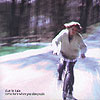 The next wave of laptop musicians appear to be providing a little more of the human element in their work by taking their faces from the blue glow of their displays and putting them in front of a microphone. Not only does this literally breathe new life into the genre, but also makes for the possibility of more interesting live performances. As Clue to Kalo, Australian laptop artist/producer Mark Mitchell blends his vocal and other musical abilities with his programming skills to give an hour's worth of complex electronic-pop compositions over the ten tracks on Come Here When You Sleepwalk.Mush
The next wave of laptop musicians appear to be providing a little more of the human element in their work by taking their faces from the blue glow of their displays and putting them in front of a microphone. Not only does this literally breathe new life into the genre, but also makes for the possibility of more interesting live performances. As Clue to Kalo, Australian laptop artist/producer Mark Mitchell blends his vocal and other musical abilities with his programming skills to give an hour's worth of complex electronic-pop compositions over the ten tracks on Come Here When You Sleepwalk.Mush
The pleasant upper register bass playing of "Empty Save the Oxygen" is combined with keyboards, machine rhythms and assorted pops and clicks. Mitchell's restrained and winding vocals deliver such lines as "I'd like to love you / But I'd like a lot of things," which pretty well sets the lyrical tone. "We'll Live Free (in NYC)" mixes up soul bass, broken-up funky drum samples, Rhodes piano and electronic elements with long vocal tones and samples to build up and morph into what sounds like its own re-mix by the tune's end. The eleven minute "Still We Felt Bulletproof" opens with some neat Wurlitzer playing and prominent vocals, again gradually building to a controlled pop chaos with patches of squelchy keyboard sounds, the splintered swing of a drum machine and walking electric bass line. On Come Here, Mitchell's creative songwriting, vocals and ideas appear to be very musical, strong and cleverly orchestrated. Although more of a laptop disc, at times there is an overabundance of electronic decorations on the more pop-oriented tunes where it feels drawn out as to make sure that no module goes unused. When the tunes are settled, they sound and feel nice. 
Read More
- Administrator
- Albums and Singles
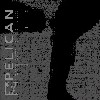 A growing number of new bands are embracing the characteristics and conventions of heavy metal in their quest for tense, dramatic post-rock instrumentalism. Pelican are a new instrumental group from Chicago, and this untitled EP on Hydra Head is their first release. The EP is quite promising, filled to the brim with big, crunchy heroic power chords and melodic riffs. The sound is not far from bands such as Explosions in the Sky or The Fucking Champs, but without all of the slow-burn atmospheric filler.Hydra Head
A growing number of new bands are embracing the characteristics and conventions of heavy metal in their quest for tense, dramatic post-rock instrumentalism. Pelican are a new instrumental group from Chicago, and this untitled EP on Hydra Head is their first release. The EP is quite promising, filled to the brim with big, crunchy heroic power chords and melodic riffs. The sound is not far from bands such as Explosions in the Sky or The Fucking Champs, but without all of the slow-burn atmospheric filler.Hydra Head
Even in the midst of their fuzzed-out doom metal noisiness, they are controlled and precise players, comparable to Godspeed You Black Emperor when they drop that boring ambient crawl and decide to rock out. The liner notes include a kind of manifesto thing about playing at high volumes, so I made sure to crank the volume to eleven when listening. The first track, "Mammoth" is an apt introduction, with a dark and compelling melody that repeats as layers of feedback-heavy guitars and rumbling bass are added. Pelican strongly push the treble and the sub in their music. Things heat up with the second track, "Pulse," where the powerful, propulsive rhythm section shines in this heavy-as-hell, riff-based metal song with a gargantuan sound. I don't know why track three is called "Forecast for Today," because it should be called "Victory March." It's a classically heroic slab of deep, epic metal, like the Master of Puppets-era Metallica everybody secretly still loves. This is an amazing track. In fact, each song on this four-track EP seems to up the intensity from the last. Pelican must have rolled a big fatty before recording the last track, the 13-minute "The Woods," their take on the stoner rock haziness of Kyuss and Sleep. Guiding the listener through several nebulous tempo and chord changes signalled by squealing feedback and rumbling bass, this track meanders around for a while before settling on a loud, noisy tribute to the god of war. The track ends with a cavernous sturm und drang, and all of the instruments fall out of sync and fade into oblivion. This EP is an excellent first release that manages to have the impact of a full-length album and I can't wait to hear what's next for Pelican.
samples:
Read More
- Michael Patrick Brady
- Albums and Singles
 When worlds collide, and cultures butt up against each other, theresult is not always confused or destructive. Natacha Atlas lives up toher name, born in Brussels of Egyptian and Moroccan decent, she spenther formative years skipping through Europe, the Middle East, and theUnited States, a journey that clearly left its mark on her life andmusic. Something Dangerousis a gently schizophrenic album, mixing the influences of UK dance,hip-hop, R&B, traditional Arabic, and Hindi pop to create afascinating amalgam. Atlas enlists a number of guest vocalists to duetwith who bring even more color to the music. "Janamaan" features Atlasin a Bollywood-style trading with a male vocalist against a glitchytechno backbeat. Her voice is powerful, full of depth and body thatenraptures as it climbs and descends her words, whether in her lyricalArabic or English. "Eye of the Duck" is a funky, reggae number withNatacha's sampled cooing and Arabic interplay flanking the distinctiveJamaican delivery and flow. "It's when we touch (ooh) / It's when wekiss (ooh)." Sure, it's not too complex, but that's the beauty. It's aperfect club track, simple, sexy, and superb. "Simple Heart" findsNatacha in a duet with Sinead O'Connor, whose contribution is nothingspecial. The track would have worked fine as a solo piece, as Atlas'vocals are attention-demanding while O'Connor's role in the song isrelegated to the background. "Who's My Baby" achieves an almost totalelectronic soundscape that sounds akin to Kylie Minogue, with a snakybass line that pulses around Niara Scarlett's English sung vocals. Onher last solo album, Ayeshteni, Atlas covered Screamin' JayHawkins' "I Put a Spell on You," and here she continues her homage toAmerican rhythm and blues with a slick cover of James Brown's "It's aMan's Man's Man's World." It's all her, on her own, delicately swayingthrough the English lyrics with ease, occasionally slipping into a lineof Arabic complete with vibrato and melisma that's as smooth as silk. Something Dangerousis a kaleidoscopic cross-cultural trip that brings the beauty of Atlas'traditional Arabic loves with the fresh sounds of the West in acreative and harmonious way. -
When worlds collide, and cultures butt up against each other, theresult is not always confused or destructive. Natacha Atlas lives up toher name, born in Brussels of Egyptian and Moroccan decent, she spenther formative years skipping through Europe, the Middle East, and theUnited States, a journey that clearly left its mark on her life andmusic. Something Dangerousis a gently schizophrenic album, mixing the influences of UK dance,hip-hop, R&B, traditional Arabic, and Hindi pop to create afascinating amalgam. Atlas enlists a number of guest vocalists to duetwith who bring even more color to the music. "Janamaan" features Atlasin a Bollywood-style trading with a male vocalist against a glitchytechno backbeat. Her voice is powerful, full of depth and body thatenraptures as it climbs and descends her words, whether in her lyricalArabic or English. "Eye of the Duck" is a funky, reggae number withNatacha's sampled cooing and Arabic interplay flanking the distinctiveJamaican delivery and flow. "It's when we touch (ooh) / It's when wekiss (ooh)." Sure, it's not too complex, but that's the beauty. It's aperfect club track, simple, sexy, and superb. "Simple Heart" findsNatacha in a duet with Sinead O'Connor, whose contribution is nothingspecial. The track would have worked fine as a solo piece, as Atlas'vocals are attention-demanding while O'Connor's role in the song isrelegated to the background. "Who's My Baby" achieves an almost totalelectronic soundscape that sounds akin to Kylie Minogue, with a snakybass line that pulses around Niara Scarlett's English sung vocals. Onher last solo album, Ayeshteni, Atlas covered Screamin' JayHawkins' "I Put a Spell on You," and here she continues her homage toAmerican rhythm and blues with a slick cover of James Brown's "It's aMan's Man's Man's World." It's all her, on her own, delicately swayingthrough the English lyrics with ease, occasionally slipping into a lineof Arabic complete with vibrato and melisma that's as smooth as silk. Something Dangerousis a kaleidoscopic cross-cultural trip that brings the beauty of Atlas'traditional Arabic loves with the fresh sounds of the West in acreative and harmonious way. - Read More
- Administrator
- Albums and Singles
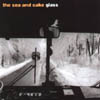 Hot on the heels of this year's full-length release, One Bedroom, The Sea and Cake continue to indulge in their newfound electronic revelry with this seven-track EP. Glass,which clocks in at just over 37 minutes, is comprised of four non-albumtracks and three remixes of songs from the album. Versions One and Twoof "To the Author" carry the synth melodies one step further thansimilarly constructed tracks on One Bedroom. The tempo isnoticably quicker than the usual Sea and Cake fare, and buzzing,spacious keyboards (which sound much like those used recently on theirplayful cover of David Bowie's "Sound and Vision") provide an excellentcompliment to the processed guitars and Sam Prekop's bouncy vocals."Traditional Wax Coin" goes in a slightly different direction with achilled-out—even minimal—jazz infusion. "An Echo In," which is closestin style to their latest album, has nice melody and instrumentation,but ultimately suffers from flat, lukewarm vocals. The remixes are doneby kindred indie spirits Stereolab and Broadcast (the latter of whomThe Sea and Cake toured with in 2000), and Detroit technohead CarlCraig. Stereoab's "Tea and Cake" remix of "Hotel Tell" strips theoriginal down to a lush, exotic lullabye, while Broadcast lend"Interiors" a heavy dose of their own tripped-out, psychedelia withloads of reverb and shards of synths. Craig's reworking of "Hotel Tell"turns the original into an ass-shakin', bass-thumping dancefloor cut,which is bound to ellicit either a chuckle or a shudder from longtimefans of the band.
Hot on the heels of this year's full-length release, One Bedroom, The Sea and Cake continue to indulge in their newfound electronic revelry with this seven-track EP. Glass,which clocks in at just over 37 minutes, is comprised of four non-albumtracks and three remixes of songs from the album. Versions One and Twoof "To the Author" carry the synth melodies one step further thansimilarly constructed tracks on One Bedroom. The tempo isnoticably quicker than the usual Sea and Cake fare, and buzzing,spacious keyboards (which sound much like those used recently on theirplayful cover of David Bowie's "Sound and Vision") provide an excellentcompliment to the processed guitars and Sam Prekop's bouncy vocals."Traditional Wax Coin" goes in a slightly different direction with achilled-out—even minimal—jazz infusion. "An Echo In," which is closestin style to their latest album, has nice melody and instrumentation,but ultimately suffers from flat, lukewarm vocals. The remixes are doneby kindred indie spirits Stereolab and Broadcast (the latter of whomThe Sea and Cake toured with in 2000), and Detroit technohead CarlCraig. Stereoab's "Tea and Cake" remix of "Hotel Tell" strips theoriginal down to a lush, exotic lullabye, while Broadcast lend"Interiors" a heavy dose of their own tripped-out, psychedelia withloads of reverb and shards of synths. Craig's reworking of "Hotel Tell"turns the original into an ass-shakin', bass-thumping dancefloor cut,which is bound to ellicit either a chuckle or a shudder from longtimefans of the band.Read More
- Administrator
- Albums and Singles
 Aaron Funk is a musical sadist, and a prolific one. His predilectionfor relentless, uncompromising breakbeats has gained his main musicaloutlet Venetian Snares a lot of cred among fans of power electronics,drum n' bass and hardcore industrial. Dubbed "drill n' bass" by peoplewho like to name things, Venetian Snares' sound palate is not all thatfar from his electronic contemporaries Squarepusher and Aphex Twin.What Funk brings to the table that is original is a sense of sleazy,dark menace. All of his numerous albums thus far have a persistentlyviolent atmosphere, with sneaky attacks of extreme, head-poundingrhythms. He is a "trickster" of sorts, beginning a track with gentleambience or light jazz before suddenly shocking the listener with acacophony of stuttering, pulsating drum programming and bizarredialogue samples involving child murder, rape and cannibalism. Releasedearlier this year, Winter in the Belly of a Snake follows in this tradition, but is somewhat of a departure from the tried-and-true Snares formula perfected on 2001's Doll Doll Doll.There is an increased emphasis on structured songs on this outing, andwith it comes the unexpected use of melody as the backbone for histypically schizophrenic beats. I am not altogether convinced that thisapproach really makes sense for Venetian Snares, but there are someworthy songs here. The disc opens with "Dad," a rather unconvincing odeto Funk's father that is overwhelmed by the drum programming and neverreally finds its footing. "Stairs Song" begins with a spookyhorror-soundtrack keyboard melody that eventually evolves into afull-blown splatter of distorted beats. There are some shorter,transitional synth tracks scattered throughout the album that attemptto add to the atmosphere of menace, but are basically pointless filler."Suffocate" finds a clipped, trebly beat and works in a surprisingsample of an angelic female singer, before mutating into a dark digitaldub song. Funk increases the internal drama of these songs byoccasionally interrupting the beat for queasy ambient interludes, whichleave the listener wondering when they will be attacked again by thesadistic rhythms. The album's most bizarre track is a cover of Danzig's"She," which sounds pretty much the same as the original. If Funk istrying to be funny with this odd choice of cover songs, he succeeds. Ifhe's actually trying to be serious, he fails. "Sink Snow Angel" beginswith a string melody reminiscent of the Kronos Quartet's theme to Requiem for a Dreambut quickly turns into a nightmare of Atari-on-amphetamine digitalinsanity. The disc ends with its longest track, "Icosikaipent", wherecold, phased metallic drum explosions keep threatening to turn intosomething interesting, but end up going nowhere. Winter is not a spectacular release for Aaron Funk, instead it's just another minor blip in his impressive discography.
Aaron Funk is a musical sadist, and a prolific one. His predilectionfor relentless, uncompromising breakbeats has gained his main musicaloutlet Venetian Snares a lot of cred among fans of power electronics,drum n' bass and hardcore industrial. Dubbed "drill n' bass" by peoplewho like to name things, Venetian Snares' sound palate is not all thatfar from his electronic contemporaries Squarepusher and Aphex Twin.What Funk brings to the table that is original is a sense of sleazy,dark menace. All of his numerous albums thus far have a persistentlyviolent atmosphere, with sneaky attacks of extreme, head-poundingrhythms. He is a "trickster" of sorts, beginning a track with gentleambience or light jazz before suddenly shocking the listener with acacophony of stuttering, pulsating drum programming and bizarredialogue samples involving child murder, rape and cannibalism. Releasedearlier this year, Winter in the Belly of a Snake follows in this tradition, but is somewhat of a departure from the tried-and-true Snares formula perfected on 2001's Doll Doll Doll.There is an increased emphasis on structured songs on this outing, andwith it comes the unexpected use of melody as the backbone for histypically schizophrenic beats. I am not altogether convinced that thisapproach really makes sense for Venetian Snares, but there are someworthy songs here. The disc opens with "Dad," a rather unconvincing odeto Funk's father that is overwhelmed by the drum programming and neverreally finds its footing. "Stairs Song" begins with a spookyhorror-soundtrack keyboard melody that eventually evolves into afull-blown splatter of distorted beats. There are some shorter,transitional synth tracks scattered throughout the album that attemptto add to the atmosphere of menace, but are basically pointless filler."Suffocate" finds a clipped, trebly beat and works in a surprisingsample of an angelic female singer, before mutating into a dark digitaldub song. Funk increases the internal drama of these songs byoccasionally interrupting the beat for queasy ambient interludes, whichleave the listener wondering when they will be attacked again by thesadistic rhythms. The album's most bizarre track is a cover of Danzig's"She," which sounds pretty much the same as the original. If Funk istrying to be funny with this odd choice of cover songs, he succeeds. Ifhe's actually trying to be serious, he fails. "Sink Snow Angel" beginswith a string melody reminiscent of the Kronos Quartet's theme to Requiem for a Dreambut quickly turns into a nightmare of Atari-on-amphetamine digitalinsanity. The disc ends with its longest track, "Icosikaipent", wherecold, phased metallic drum explosions keep threatening to turn intosomething interesting, but end up going nowhere. Winter is not a spectacular release for Aaron Funk, instead it's just another minor blip in his impressive discography. Read More
- Administrator
- Albums and Singles
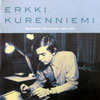 This CD is a treasure trove, mother lode, holy grail and the missinglink in the fossil record of electronic music. Kurenniemi'sachievements in the design of revolutionary instruments stand apartboth in the technical aspects and in how they introduced radically newways of making music. The recordings on this CD show just how far aheadof his time he was. It includes his own musical creations, somepromotional material for the instruments he tried to sell, someexperiments and a couple of collaborations. The breadth of the materialis so big, from sequenced Bach through tape collage to improvised tapeand feedback noise performance, that I can only mention a few. Theopening two tracks are crucial for Pan Sonic fans. They feature hisElectronic Quartet (Sähkökvartetti), a device with four instruments inone, and a huge, outrageously 90s sound. (If you doubt that Kurenniemiwas responsible for the Pan Sonic sound, try a little web research.)Kurenniemi's psychedelic tape collage, "Hana," is beautifully ugly anddream-like while the more academic sounding "Preludi" is a piercingmechanical composition in mutating repeating phrases and freeglissandi. "Virsi," another collage piece, shows off the composer'srather Finnish taste for the absurd as well as for the abstract,combining electronic sounds, various samples of voices, movies andmusic with tape effects, a long soaring multi-tone glissando, awonderful plaintive deep feedback solo. Among all the dazzlinginvention and sophistication throughout the CD it's the earliestrecording that I love the most. Inspired by the massive turbines of apower plant, "On-Off" is a live recording of Kurenniemi's manipulatingall the equipment at Helsinki University's Electronic Music Studio atonce. It's all noise with a whirring, throbbing texture, wild feedback,ripping slashes of sound and massive dynamics all with an evocativetight acoustic ambience. This absolutely brilliant recording could wellbe the prototype of modern improvised noise art performance.
This CD is a treasure trove, mother lode, holy grail and the missinglink in the fossil record of electronic music. Kurenniemi'sachievements in the design of revolutionary instruments stand apartboth in the technical aspects and in how they introduced radically newways of making music. The recordings on this CD show just how far aheadof his time he was. It includes his own musical creations, somepromotional material for the instruments he tried to sell, someexperiments and a couple of collaborations. The breadth of the materialis so big, from sequenced Bach through tape collage to improvised tapeand feedback noise performance, that I can only mention a few. Theopening two tracks are crucial for Pan Sonic fans. They feature hisElectronic Quartet (Sähkökvartetti), a device with four instruments inone, and a huge, outrageously 90s sound. (If you doubt that Kurenniemiwas responsible for the Pan Sonic sound, try a little web research.)Kurenniemi's psychedelic tape collage, "Hana," is beautifully ugly anddream-like while the more academic sounding "Preludi" is a piercingmechanical composition in mutating repeating phrases and freeglissandi. "Virsi," another collage piece, shows off the composer'srather Finnish taste for the absurd as well as for the abstract,combining electronic sounds, various samples of voices, movies andmusic with tape effects, a long soaring multi-tone glissando, awonderful plaintive deep feedback solo. Among all the dazzlinginvention and sophistication throughout the CD it's the earliestrecording that I love the most. Inspired by the massive turbines of apower plant, "On-Off" is a live recording of Kurenniemi's manipulatingall the equipment at Helsinki University's Electronic Music Studio atonce. It's all noise with a whirring, throbbing texture, wild feedback,ripping slashes of sound and massive dynamics all with an evocativetight acoustic ambience. This absolutely brilliant recording could wellbe the prototype of modern improvised noise art performance.Read More
 Sorry to be the bearer of brutal truth yet again, but here goes: noiseis boring. No other known genre consists of nearly the number ofcompletely talentless assholes as noise does—not even metal! Full ofextreme tedium and seemingly unyielding emulation, the music's onlysalvation apparently comes in the form of the "originators" and the"permutators." Originators like Masami Akita (known best as Merzbow)planted the seeds and populated the genre. His own prolific outputyielded countless clones worldwide, all the while passing them bythrough revolution of medium and delivery systems as well as sound(recall the infamous car installation or the 18 CD rubber boxset).While far from innocent of releasing a significant number of unexcitingalbums over the years, Akita regularly ups the ante just enough to stayrelevant in a time where there are more useless players than ever. Satanstornade,his collaborative project with Mego artist and "permutator" RussellHaswell, is one of those releases that will keep him from fading intorelic status. Composed exclusively on two Powerbooks with unnamed,various software programs, this album celebrates the relativelyuntapped digital realm of noise. Recorded live to MiniDisc, these fourtracks show two men duking it out in anonymity, pummeling eardrums andsquealing electronically over the course of 48 viscious minutes. Thoughsonically similar, the compositions make for an interesting, albeitdifficult, listening experience. I strongly recommend giving the albuma nonstop listen to achieve the full effect. So while countlessjerkoffs continue in their attempts to recycle Music For Bondage Performance ad nauseum, Akita and Haswell successfully resuscitate the terminal patient known as noise with this blistering workout.
Sorry to be the bearer of brutal truth yet again, but here goes: noiseis boring. No other known genre consists of nearly the number ofcompletely talentless assholes as noise does—not even metal! Full ofextreme tedium and seemingly unyielding emulation, the music's onlysalvation apparently comes in the form of the "originators" and the"permutators." Originators like Masami Akita (known best as Merzbow)planted the seeds and populated the genre. His own prolific outputyielded countless clones worldwide, all the while passing them bythrough revolution of medium and delivery systems as well as sound(recall the infamous car installation or the 18 CD rubber boxset).While far from innocent of releasing a significant number of unexcitingalbums over the years, Akita regularly ups the ante just enough to stayrelevant in a time where there are more useless players than ever. Satanstornade,his collaborative project with Mego artist and "permutator" RussellHaswell, is one of those releases that will keep him from fading intorelic status. Composed exclusively on two Powerbooks with unnamed,various software programs, this album celebrates the relativelyuntapped digital realm of noise. Recorded live to MiniDisc, these fourtracks show two men duking it out in anonymity, pummeling eardrums andsquealing electronically over the course of 48 viscious minutes. Thoughsonically similar, the compositions make for an interesting, albeitdifficult, listening experience. I strongly recommend giving the albuma nonstop listen to achieve the full effect. So while countlessjerkoffs continue in their attempts to recycle Music For Bondage Performance ad nauseum, Akita and Haswell successfully resuscitate the terminal patient known as noise with this blistering workout.

